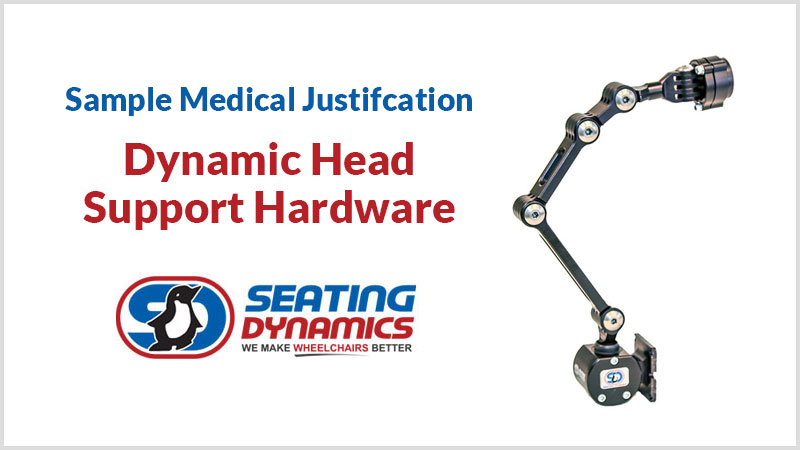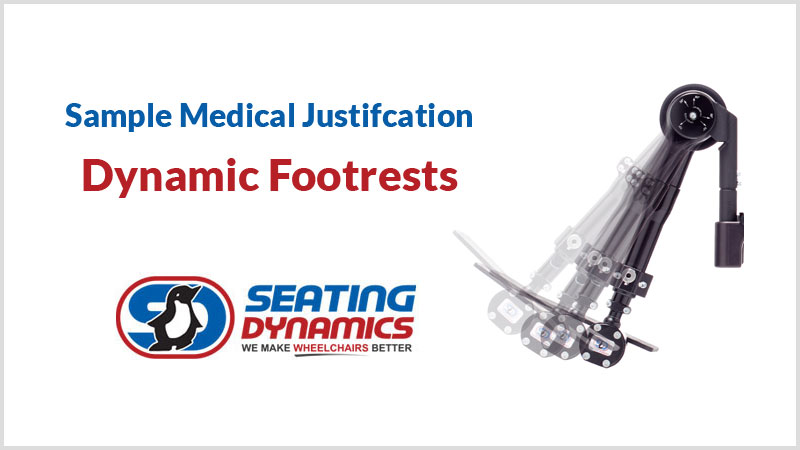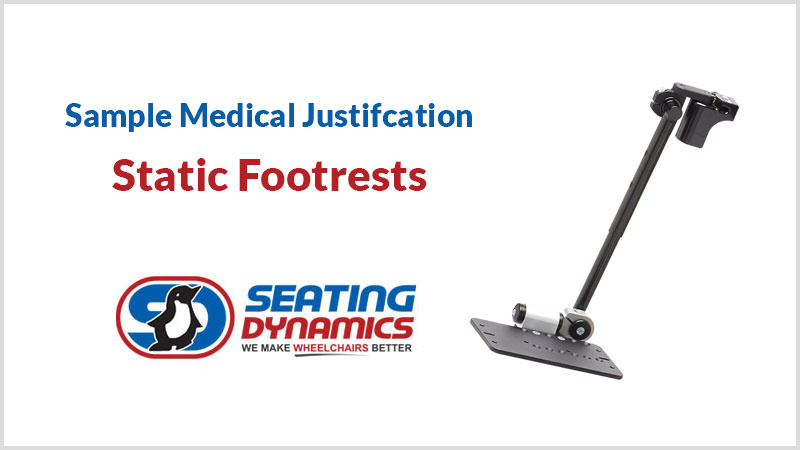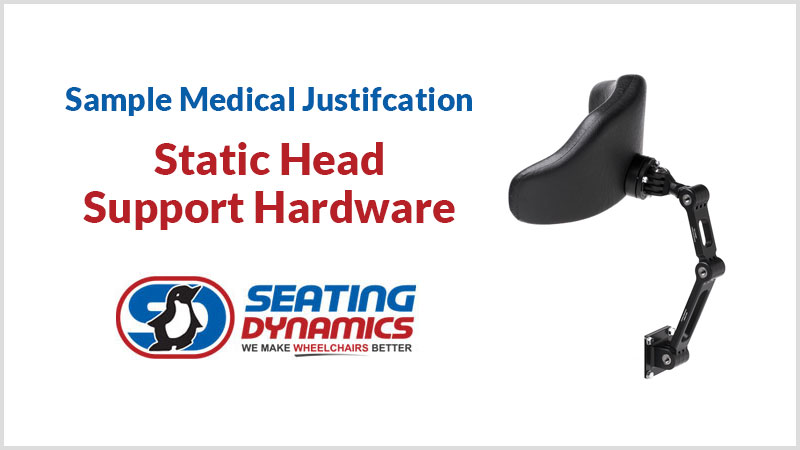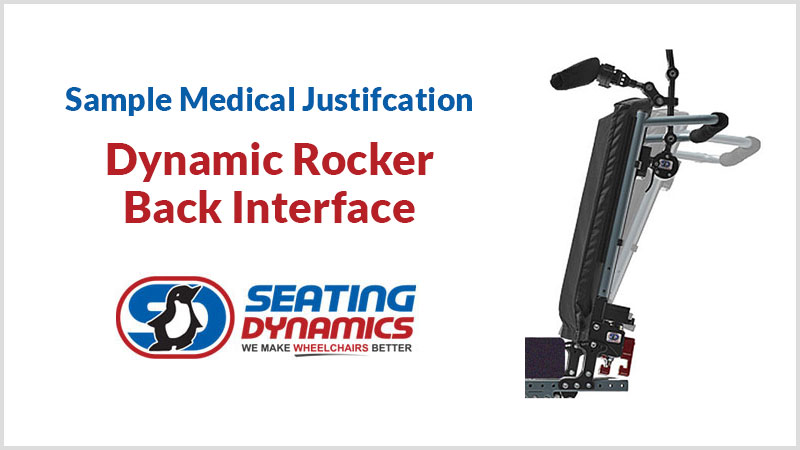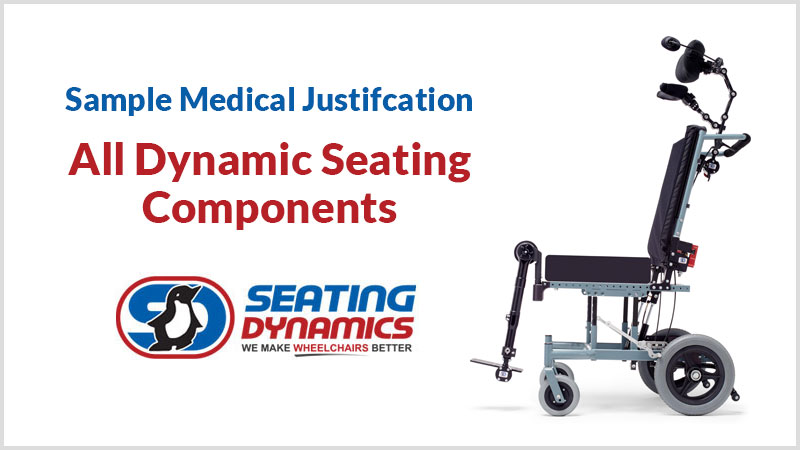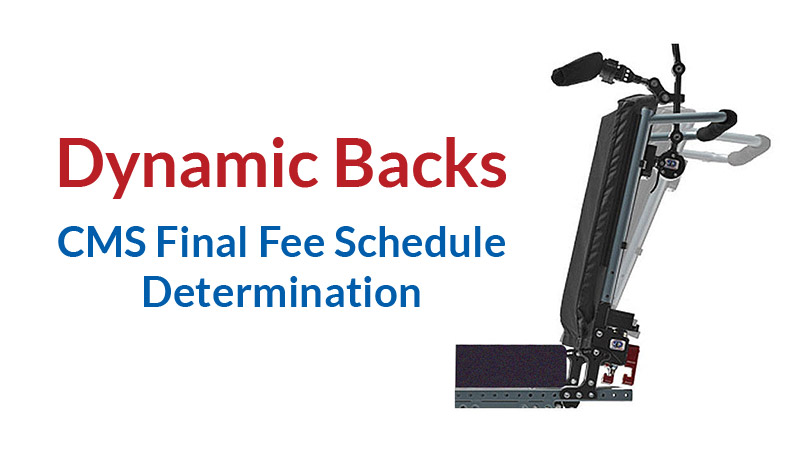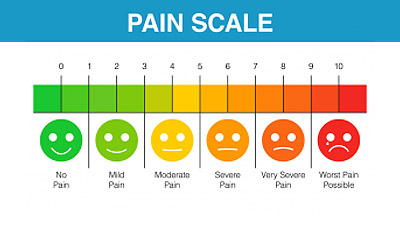Sample Medical Justification – Dynamic Head Support Hardware
The following are sample medical justification wording for the Seating Dynamics Dynamic Head Support Hardware which may be used in…
Sample Medical Justification – Dynamic Footrests
The following are sample medical justification wording for the Seating Dynamics Dynamic Footrests for wheelchairs which may be used in funding…
Sample Medical Justification – Static Footrests
The following are sample medical justification wording for the Seating Dynamics Static Footrests which may be used in documentation, such…
Sample Medical Justification – Static Head Support Hardware
The following are sample medical justification wording for the Seating Dynamics Static Head Support Hardware which may be used in…
Sample Medical Justification – Dynamic Rocker Back interface
The following are sample medical justification wording for the Seating Dynamics Dynamic Rocker Back interface which may be used in…
Overview – Sample Medical Justification – All Dynamic Seating Components
The following are sample medical justification wording for specific Dynamic Seating components which may be used in documentation, such as…
CMS Final Fee Schedule Determination: Dynamic Backs
A primary challenge in Complex Rehab Technology (CRT) is funding. A client may benefit from CRT equipment but not receive this equipment due to funding barriers.
Dynamic Seating and Medicare
Is it possible to get funding for Dynamic Seating components through Medicare? What about funding for clients who are on both Medicare and State Medicaid? To get the answers, I contacted my friend Andria Pritchett, Executive Director of Clinical Education for Numotion.
Dynamic Seating: a cost benefit analysis
Whenever I recommend complex rehab equipment for a client, I need to be aware of the cost of my recommendations. Why? One reason is that my documentation must often include why something less costly will not meet the client’s needs.
Comfort vs. Pain in Funding Documentation
If I go to the doctor for any reason, someone on staff always asks if I am in pain and, if so, what level of pain I’m in. Pain is a big deal. Beginning in the 1990’s, increased attention was given to pain and it was even dubbed the ‘fifth vital sign.”

